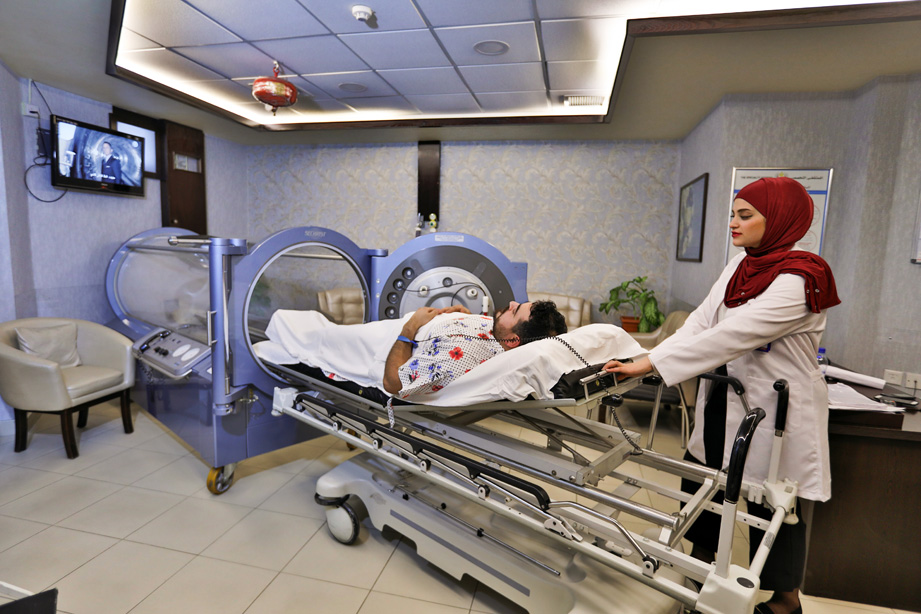What do we mean by Hyperbaric Oxygen Therapy

Simply, its breathing oxygen with 100% concentration under ascending atmospheric pressure. The idea of this therapy goes back to 1600s where the first chamber was built by the British scientist Henshaw to treat high altitude related diseases. It was widely used in 1928 inside hospitals by Anesthesiologists for many years. Later on, the device was destroyed during World War II and was not used for a while. However, the device was re-used world wide for its great benefits and uses.
Mechanism of Hyperbaric Oxygen Therapy
Most oxygen in the body is carried attached to hemoglobin in red blood cells with 97% saturation in a normal atmospheric pressure while small fraction is carried by blood fluids (plasma). By physics laws without going into details, the percentage of oxygen dissolved in plasma can be increased by providing it with a high concentration and high atmospheric pressure. Therefore, this high concentration of plasma oxygen can reach body areas that the blood inside the blood vessels can’t reach such as areas with inadequate blood flow due to stenosis of blood vessels or tissue edema.
In addition, Oxygen can be delivered by this method regardless of hemoglobin concentration in cases such as anemia and severe bleeding.
- High oxygen levels cause blood vessel constriction that reduces edema, limb swelling and incidents such as compartment syndrome and burns.
- Hyperbaric oxygen increases the free oxygen radicals, which oxidizes proteins and dead cell remnants and slows down bacterial turn over and growth especially the anaerobic bacteria. Also it increases the production of peroxidase enzyme that help the white blood cells in killing bacteria.
- Hyperbaric oxygen affects the inflammatory chemical medium as well, which help and stops the inflammatory reactions inside the body.
- Hyperbaric oxygen decreases the heart rate and preserve the cardiac output. High heart rates is considered a high risk for cardiac and blood vessel diseases similar to hypertension, Diabetes mellitus and high cholesterol.






